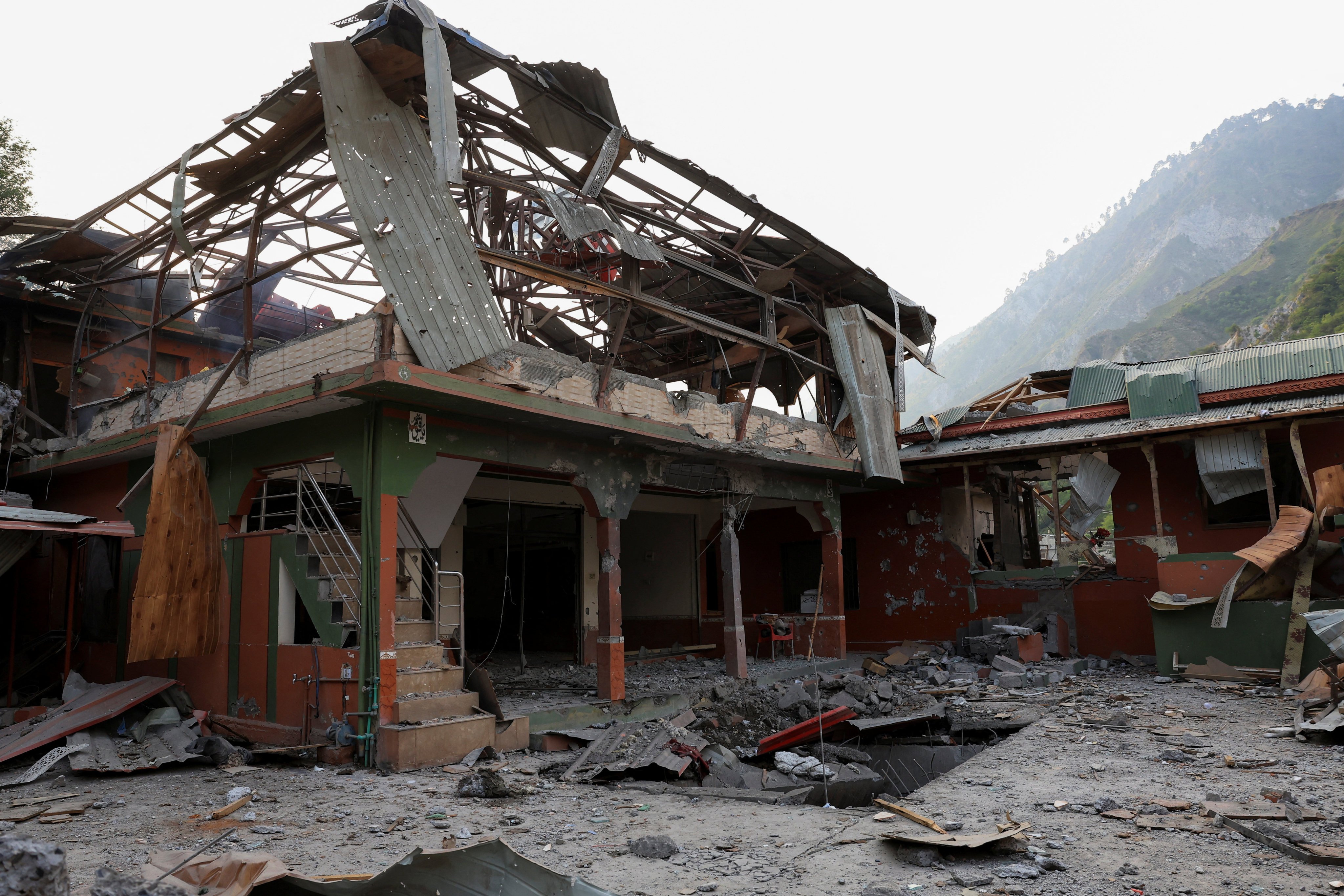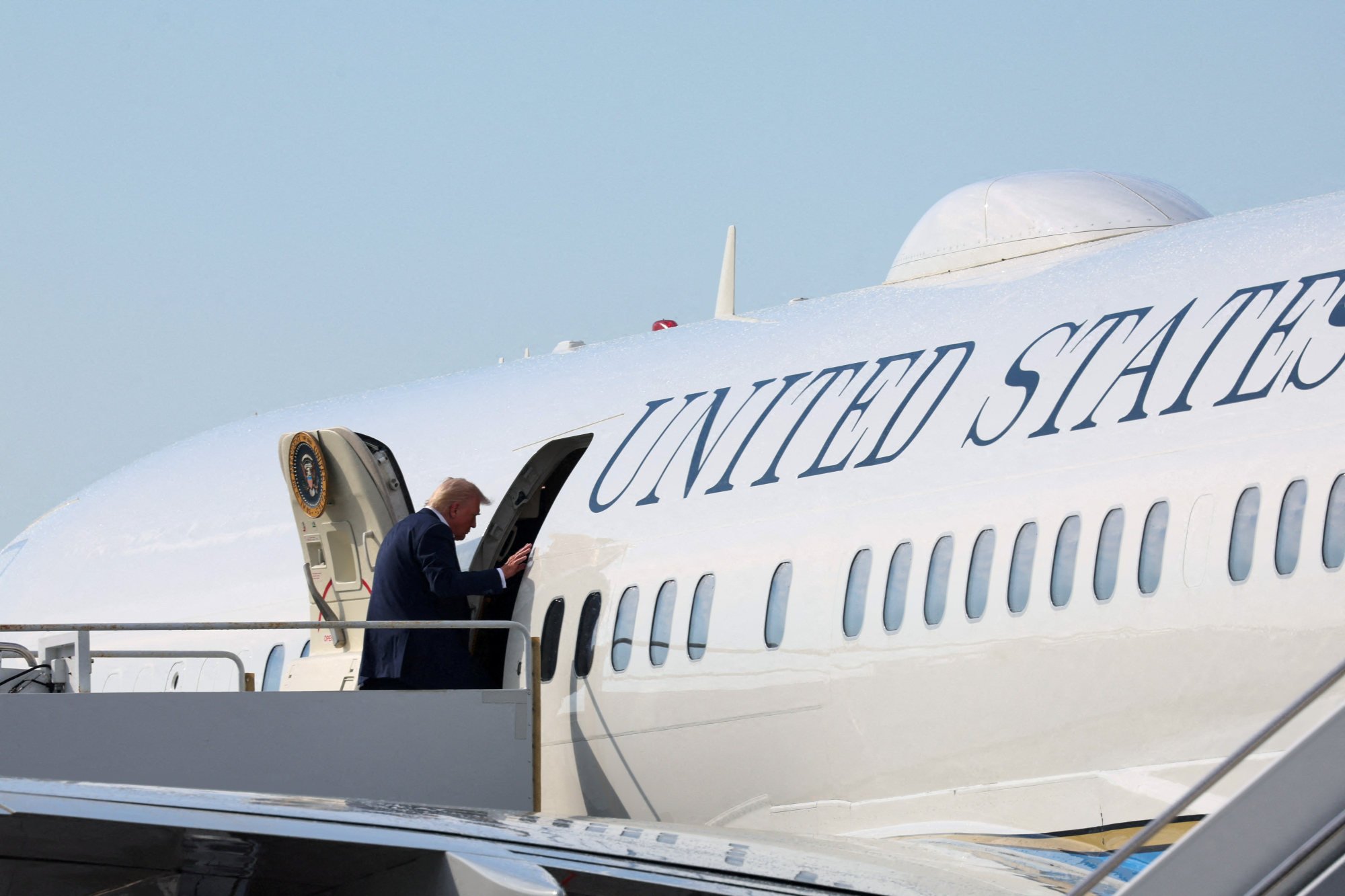As India and Pakistan clash, Trump opts for cautious US diplomacy: ‘I want to see them stop’
Trump aims to balance US influence while prioritising de-escalation between the nuclear-armed neighbours

President Donald Trump has been shaking up how the United States does business in the world. But with the violence between Pakistan and India, Trump has marked a return to a traditional, and even cautious, diplomacy.
The United States across successive administrations has sought to build ties with India and Trump voiced solidarity after suspected Islamist gunmen killed 26 people in Indian-administered Kashmir, nearly all Hindus.
Trump did not criticise India after it carried out retaliatory strikes against Pakistan but has pleaded for a quick resolution.
“It’s so terrible,” Trump said on Wednesday. “I get along with both. I know both very well, and I want to see them work it out. I want to see them stop.”
India briefed Secretary of State Marco Rubio, who is also interim national security adviser, on the overnight strikes.
After the Kashmir attack, Rubio spoke to Pakistan’s prime minister to urge condemnation and cooperation but also asked India’s foreign minister to avoid escalation.
Lisa Curtis, who was the National Security Council senior director on South Asia during Trump’s first term, said the US remained unique in its influence on both sides.
“There are other countries that are worried and may be in touch with their Indian and Pakistani counterparts, but when it comes down to it, it is the role and responsibility of the United States to help the countries find a face-saving way out of the crisis,” said Curtis, now a senior fellow at the Centre for a New American Security.
In 2019, Indian Prime Minister Narendra Modi also ordered strikes after a deadly attack, which was against soldiers rather than civilians.
Mike Pompeo, then Trump’s secretary of state, later said that he defused tensions after an Indian official contacted him to voice suspicion that Pakistan was readying a nuclear strike.
“I do not think the world properly knows just how close the India-Pakistan rivalry came to spilling over into a nuclear conflagration,” Pompeo wrote in his memoir.
India blames Islamabad for the attack and points to remarks beforehand by Pakistan’s army chief Asim Munir who called Kashmir – the Muslim-majority Himalayan region divided between the powers – as Pakistan’s “jugular vein”.
Pakistan denies responsibility for the attack.
Former president Joe Biden had little patience for Pakistan, keeping it at arm’s length as he fumed over Islamabad’s role in the two-decade Afghanistan war.
Pakistan was stunned late in Biden’s term when his deputy national security adviser, Jon Finer, called its long-range missiles “an emerging threat” to the US, Islamabad’s Cold War-era military partner.
Trump on returning to the White House quickly invited Modi but Pakistan has also reached out, arresting a purported perpetrator of the 2021 suicide bombing in Kabul on US troops, with Trump trumpeting the move in an address to Congress.
“One of the motivating factors for Pakistan to de-escalate this situation is in order to have a better relationship with the United States,” Curtis said.

Manjari Chatterjee Miller, a senior fellow at the Council on Foreign Relations, said that the US faced a dilemma on its public stance.
“If the United States government were to be seen as either unsupportive of India or interfering in any way in Kashmir, it would be a serious setback to the US-India partnership. But the risk of escalation between two nuclear-armed neighbours is also real,” she wrote in an essay.
Trump has largely sidelined career diplomats since his return, relying on his friend Steve Witkoff to criss-cross the globe.
Trump has so far failed in his quest to quickly end the Ukraine war and Israel has ended a Gaza ceasefire with Hamas, with Witkoff still pursuing diplomacy with Iran and recently reaching a deal with Yemen’s Houthi rebels.
“The Trump administration has several global crises to deal with currently and would like to avoid another one right now,” said Aparna Pande, a research fellow at the Hudson Institute.
“The Trump administration would also like the focus to remain on trade and commerce and the competition with China and any conflict detracts India, a partner in this endeavour, away from these efforts,” she said.